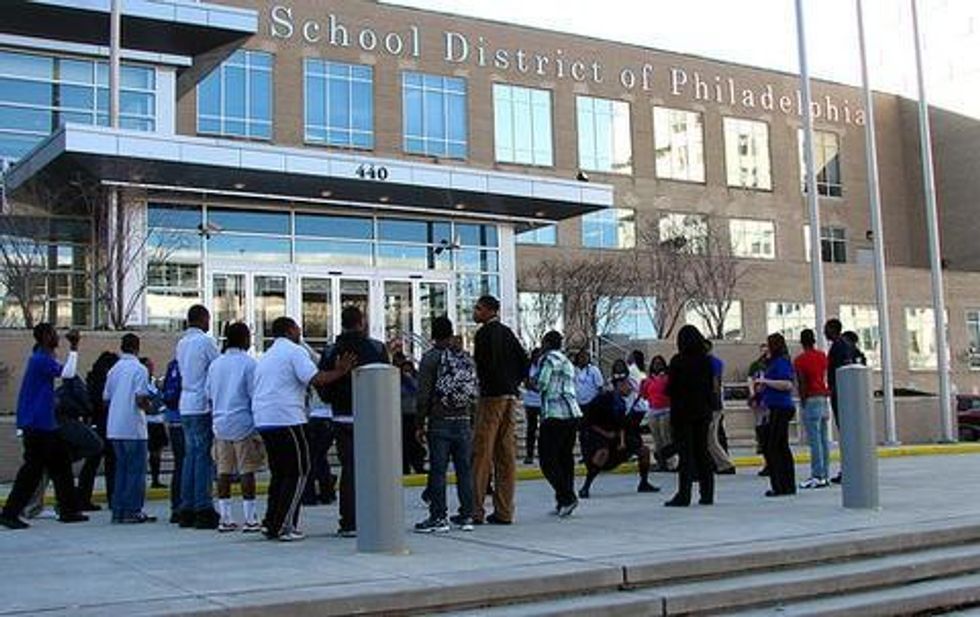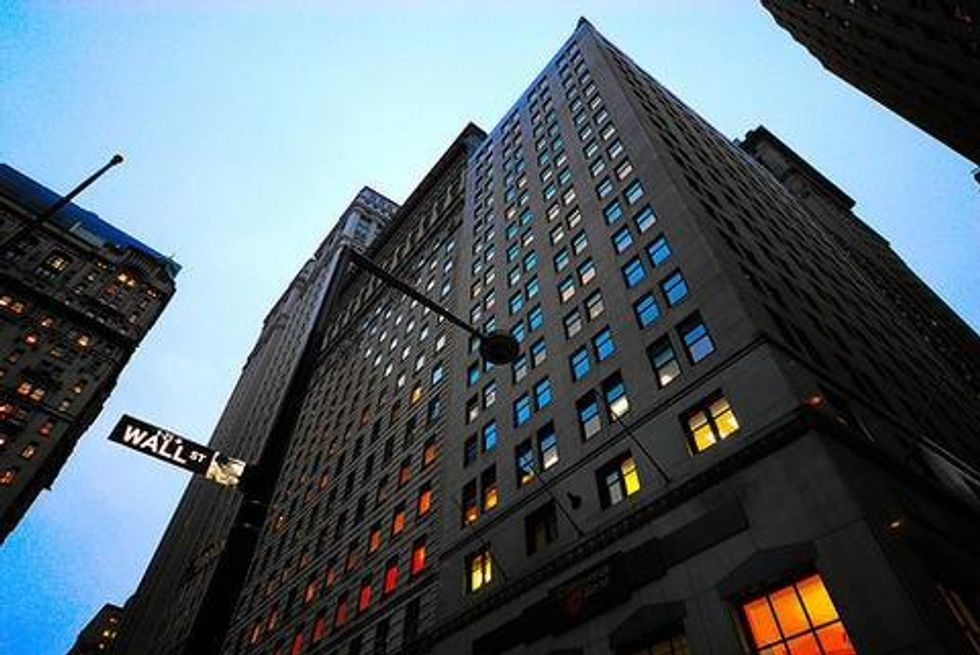Of all the public entities that have fallen victim to the big bank-induced economic downturn, cities have the most compelling stories of being burned. If "all politics is local," this is even more true for economics, at least where people's ordinary lives are concerned. City budgets contain the life blood of communities. School districts, contracts with utility companies, waste services, and street repairs all filter locally. City social services are often the first line of response for people in need. City councils also fund soup kitchens, domestic violence shelters, and animal shelters.
So we should take good care of our cities, right? We shouldn't throw them to the wolves when it comes to funding essential services, right?
Matt Taibbi's well-read Rolling Stone article, "The Scam Wall Street Learned from the Mafia," details the struggle of municipalities, schools, and other public entities after big private banks induced them to gamble their public funds on the direction of the market -- often resulting in debts that far exceeded their budgets and the original cost estimates for the projects they were seeking to fund. Taibbi's article specifically described how "banksters," as populists are wont to call them these days, conned Jefferson County, Alabama, to spend $5 billion for a sewer project estimated at $250 million.
Trey Bundy and Shane Shifflett of California Watch recently detailed the story of American Canyon High School in Napa Valley. When Napa Valley's school district needed a new high school, and taxpayers didn't want to pay for it, the district took out a $22 million loan payable in 2049. The amount to be repaid 21 years in the future? $154 million. Bundy and Shifflett note that over 1,300 districts across the country are doing the same thing -- engaging in capital appreciation bond borrowing to finance their publicly necessary building projects. Some jurisdictions are banning this kind of borrowing, but no one is offering an alternative. Tax increases are unpopular and, apparently, politically unrealistic. Cutting budgets in other areas is impossible now -- there's virtually nothing left to cut.
Public school districts should not have to refinance their outstanding bonds in order to reduce the interest burdens on their debt. A school district should not be spending $2 million annually to pay interest on their debt. And a big part of the problem is that conventional thinking sees the only route for the financing of public projects as a trip to big, private banks to apply for a loan, the interest of which will go into the hands of private investors and entities with no connection to the community where the project is located. The case of the San Francisco-Oakland Bay Bridge retrofit illustrates this principle. Six billion dollars of interest and financial fees went to private investors. Had a public bank financed the project, the interest would have been paid to that bank, which would then have returned the vast majority of that money to the state's treasury.
A different paradigm should frame the issue of access to credit for the public good than that which governs credit for private investment. Rather than a utopian dream, public banking is an option that actually works -- as evidenced by the most solvent bank in the country, the Bank of North Dakota (BND). During the 2008 economic crisis, North Dakota had its largest budget surplus in state history.
The profits of public banks are returned to the public, whereas privately owned banks increase taxpayer costs through compound interest and are compelled to return profits to shareholders. Public banks issue credit at low-cost or no-cost to cities and states. Public banks can offer "bridges" to residential, agricultural, and public works financing, as the BND did during the Great Depression. BND also partners with the private sector, encouraging entrepreneurial startups and providing check-clearing, liquidity, and bond account safekeeping to private banks.
While it is true that cities' budgets are bare, this is not because there's "no money" available. What we need is to move away from the model perpetrated by the large, unaccountable entities like private banks and credit bureaus that got us into this mess in the first place. City governments should divest from big private banks. Cities and states should create public banks modeled after the BND, and demand transparency, accountability, and democracy from the institutions that have an outsized influence on the health of local economies. This is a better way for cities to meet their needs in the twenty first century. We already know that it works.
The Public Banking Institute (PBI) is a non-partisan think-tank, research and advisory organization dedicated to exploring and disseminating information on the potential utility of publicly-owned banks, and to facilitate their implementation. For more information about public banking, please check out PBI's "Public Banking in America Legislative Guide".





